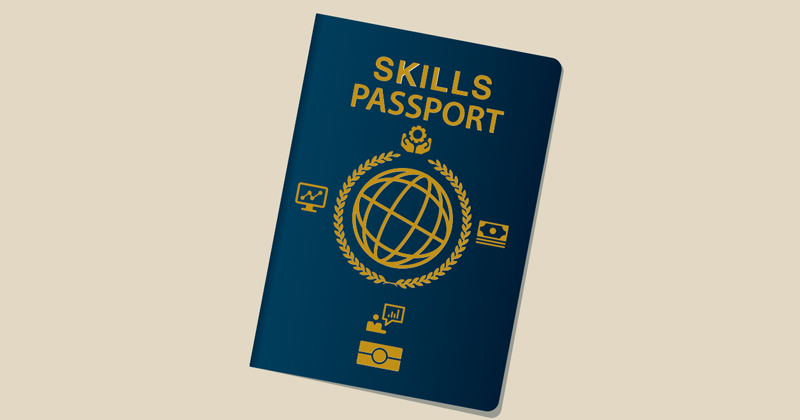I love visiting schools. And not just because I used to be a teacher, so I feel at home there. It’s because schools are where I hear the best ideas about how to change our country for the better.
On a recent trip to a secondary school in Bracknell, I was challenged by a GCSE citizenship class with a simple but unexpected question: why don’t we have a Duke of Edinburgh for life skills?
These students wanted a way to measure and capture the skills they were already learning in school and through their extracurricular activities – a “skills passport” to help demonstrate to themselves and future employers that they were ready for the world of work.
The curriculum and assessment review was clear that essential skills need promoting.
It warned: “Stakeholders have told us that, too often, young people are leaving education lacking critical skills [like] oracy, digital, media and financial literacy.”
I hear this from students as well as businesses in my constituency: young people have the knowledge, but not always the skills to translate it into success.
‘Game-changing steps’
The government has committed to introduce financial literacy training at primary schools, build an oracy framework for secondary and primary students, and give every student a core enrichment entitlement.
These will be game-changing steps in expanding opportunities for young people and sharpening the skills they need to face the modern world.
But what isn’t measured isn’t valued, and if we don’t have a formal (but light-touch) way of capturing the skills young people are developing, these reforms risk not landing.
That’s why I’m calling on government, youth organisations and businesses to collaborate to design a nationally recognised skills passport – a digital portfolio of the essential skills young people have developed.
A skills passport would capture progress, be a record of achievement and allow young people to articulate their skills to employers, universities and FE colleges – as well as, crucially, to themselves.
A structure that supports, rewards and tracks skills development would also increase opportunity.
‘We must address the gap’
Research from the Communication Trust shows the speaking age of children from poorer backgrounds can be as far as 19 months behind peers from wealthier backgrounds.
And Voice 21 – a charity that promotes oracy education in schools – says children leaving school with poorer verbal communication are less likely to find employment.
If this gap goes unaddressed it widens and perpetuates a cycle of shrinking opportunities.
This isn’t a new idea. Skills passports are already used in some parts of the country. Skills Builder Partnership is working on a universal framework for essential skills – which it breaks down into listening, speaking, problem solving, creativity, adapting, planning, leadership and teamwork.
Skills Builder outlines clear principles around the implementation of skills, such as starting as early as possible and taking the time to measure these skills through consistent reflection.
Starting as early as possible is the rub.
The students I spoke to were on the cusp of choosing their A-levels: the gateway to work or further study. Adding a skills passport at this stage would be valuable, but it’s too late.
‘No scheme should pile on extra workload’
Instead, as the government’s curriculum review response makes clear, enrichment must happen throughout a young person’s educational journey by increasing opportunities at primary and key stage 3.
A skills passport also needs to be able to accurately record skills development in a way that is meaningful and trusted by employers, without introducing heavy-touch assessment.
We have too much of that already in schools, and no scheme that piles extra workload on teachers can hope to succeed.
A passport also needs to capture skills being developed outside the classroom, whether through extracurricular activities like the Duke of Edinburgh, or sports clubs, music groups and youth organisations.
The GCSE class that prompted this proved – as students always do – that they are ahead of the adults. Young people want a way to validate the skills they build instinctively in and beyond the classroom, and it’s time that they were given a framework to do it.








Isn’t this what Girl Guides etc used to (and perhaps still) do? Maybe not so fashionable these days.
Certainly celebrating the whole life of the child would be wonderful to see.